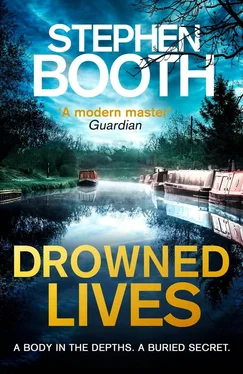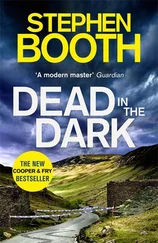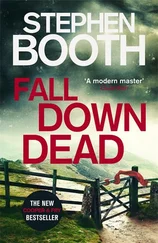Some people seem to be able to brush off fear. But not me. I was an ordinary man who’d lived a quiet, even sheltered life. I’d experienced nothing more threatening than the face of a pub landlord calling last orders, or a white envelope containing my P45. Violence was alien to me. Or it had been since my childhood. I’d always hoped it would never touch my life again.
It was an irony that I’d spent the last few weeks thinking about death. The deaths of William and Josiah Buckley, and particularly the untimely death of Great-Uncle Samuel, which had been painful enough. Events had even made me reflect on the passing of my own parents, sad and unpleasant deaths in their own particular ways. But it takes a moment when death stares you personally in the face to make you recognise what it really is.
It was something for which I had been ludicrously unprepared. The shock of it had jolted me from a deeply ingrained complacency. And it had taught me what true fear was.
When I answered the door that morning, clutching my temple against the excruciating racket of the bell, it was in full expectation of finding Rachel on the doorstep, full of overwhelming sympathy and bright new ideas. But instead I saw a face whose expression held a fear that I recognised as if it were my own.
‘Frank!’
He was fidgeting and nervous, casting glances down the street, and his clothes looked as though they’d been thrown on in any order. He was pale, and his hair stood up on end as if he’d been running his fingers through it.
‘Chris, can I come in?’
He was asking plaintively, as if he fully expected me to say no and send him away. But how could I do that when I recognised a fellow sufferer? Here was another man who’d discovered that life was not as benign as he’d always been led to believe. He was a man whose fragile defences had failed to cope with the real world, and I was beginning to know how he felt.
‘Have you been home?’ I said as he entered the hallway. ‘Does Sally know where you are?’
‘No, I haven’t been back,’ he said, and shivered as if he was remembering a night spent sleeping rough on the street.
‘You’ve got to talk to her.’
‘I will. But I’ve got to do this first.’
‘Do what?’
‘Tell you what you wanted to know, that first day you came to Chasetown. I thought if I didn’t help you, I’d be able to keep out of it. But I got frightened. It was after you came that second time, and you saw me by the reservoir, I realised that I was in a more vulnerable position than I thought.’
I frowned at him, trying to work out what he meant. ‘Did you think I might try to put pressure on you once I knew your little secret? Well, don’t worry about that. I’m not into blackmail.’
‘No, no, it’s not that. Please don’t be angry with me, Chris. This is very hard for me. I’ve had a very bad couple of days. For a while, I thought... well, I thought there was only one way out.’
His shoulders slumped, and I could see in him the classic case of a weak man, unable to resist the temptations that tormented him, who’d suddenly seen the prospect of his respectable facade being blown apart. He was facing a future spent trying to explain and justify the unjustifiable.
I took him into the sitting room and turned on the gas fire in the tiled fireplace to fight the chill. Frank stood facing the fish tank as if frightened of contact with the yellow three-piece suite.
‘When you left home, what did you intend to do?’ I asked. He stared at the fish without seeing them. ‘I didn’t know what I intended to do. I was very confused. But frightened too. Frightened of what you might do, and what other people might do. But I didn’t have the courage to find a way out. I’m too much of a coward for that. So in the end I went back, with my tail between my legs. And I saw that the only thing to do was tell you everything. Then you might not make the mistake of putting yourself in danger too.’
‘I think I’ve already done that, Frank.’
‘Oh, hell,’ he said. He followed the movement of a neon tetra with absorption. I recalled Leo Parker standing in almost the same spot admiring the fish in his calculating way, like a visiting salesman.
I told Frank about the fire on the boat and my narrow escape. He listened carefully, his expression growing ever more fearful until I thought he was going to burst into tears.
‘Maybe we both need a stiff drink,’ I said. ‘Then you can tell me what you’ve come to say.’
‘I should have come before. I hope I’m not too late.’
I fetched a bottle and two glasses from the kitchen and poured Frank a large Glenmorangie. At first he spluttered and coughed over it like a man who’d never tasted real whisky before. But the colour came back to his face almost immediately, and his eyes began to lose a bit of their haunted whiteness. I persuaded him to settle in one of the armchairs and turned up the heat on the gas fire. A smell of burning dust filled the air, but neither of us paid it any notice.
While my father’s old carriage clock ticked away on the wall and the tetras and mollies flicked restlessly backwards and forwards in their tank, Frank told me that he’d been ten years old when his parents divorced, born when his mother Alison was just eighteen. Though his father had stayed in Burntwood, Alison had taken their son and moved to Lichfield, putting four or five miles between them. Not very far on the map maybe, but enough of a symbol of separation for a young boy.
Then Frank’s mother had gone back to work. She’d found a job in the offices of the Sandfields Brewery, which was expanding under the guidance of its new chairman, Samuel Longden. Alison was thirty by then, and an attractive woman, according to Frank, who may have been biased. Within two years, Alison had become the boss’s secretary, and Samuel came to rely on her as he finalised plans to sell off the brewery to one of the national companies in Burton-on-Trent.
In 1969, Samuel retired a wealthy man. Alison might well have been out of a job, if he hadn’t solved the problem by asking her to marry him. Though she was twenty-three years his junior, Alison had agreed.
‘What did Samuel look like then?’ I asked Frank.
He stirred uneasily and gulped the last of his whisky. I refilled his glass while he collected his thoughts, thrown out of gear by my interruption.
‘He was tall, very upright, with wavy grey hair swept back. Distinguished, I suppose you’d say. He never seemed to laugh much, though. Sally once said he had a mysterious air about him, like somebody who’d suffered in the past. She thought it must be something to do with his time in the navy during the war. And there was something else the women always seemed to go for. He had these blue eyes...’
‘Was that what your mother saw in him, do you think? A romantic figure?’
Frank bared his teeth in a bitter grin.
‘Oh yes. But did I mention that he was stinking rich as well?’
‘Go on.’
Frank had been furious at Alison’s marriage to Samuel Longden. As a teenager he’d spent a tortured period living in Ash Lodge with his mother and the doting Samuel, shutting himself in his room and playing Rolling Stones records at full volume.
My great-uncle apparently had the good sense to leave the lad to his own devices. Though money was no object, Frank had stubbornly refused to accept expensive presents. Instead, he’d thrown himself into his A levels, and had escaped permanently by earning a place at a polytechnic in Birmingham to study Electrical Engineering. He’d spent his college vacations at his father’s terraced house in Burntwood rather than at the gloomy Victorian retreat that Samuel had taken his mother to. There was even more reason for him to stay away from Whittington when his mother became pregnant with Samuel’s child — Frank’s half-sister, Caroline Longden.
Читать дальше












